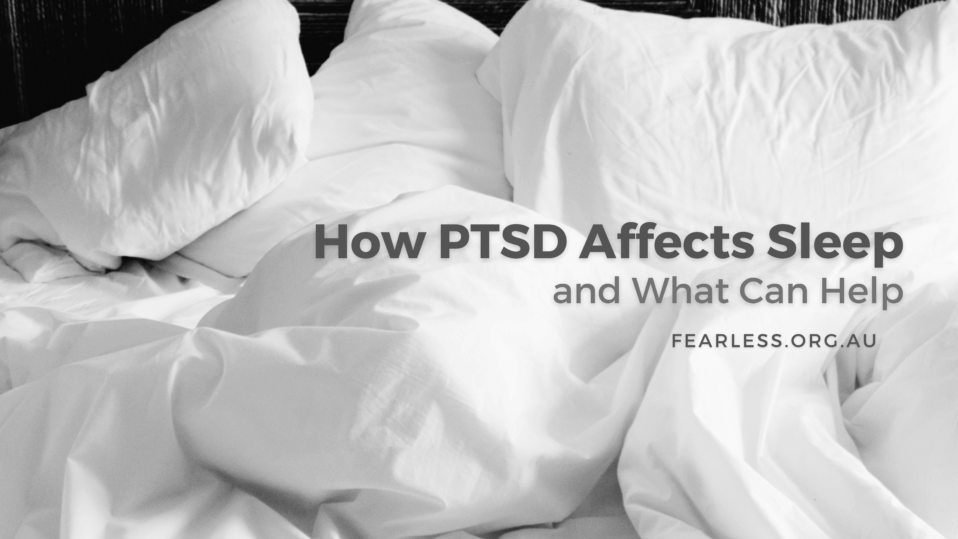Post-traumatic stress doesn’t just affect your waking hours. For many people across Australia and New Zealand, sleep becomes one more casualty of trauma. If you’re tossing, turning, or dreading bedtime altogether, you’re not alone.
At FearLess, we support people living with the consequences of post-traumatic stress. Here’s why sleep can feel so hard, and what can actually help.
How PTSD Messes with Sleep
PTSD puts your nervous system on high alert, even when nothing’s going on. You might:
• Jolt awake from nightmares
• Feel wired when you’re meant to wind down
• Wake up too often or too early
• Avoid sleep just to dodge bad dreams
You’re not weak. You’re not making it up. This is how trauma rewires the brain, and it’s not permanent.
Three Things That Can Actually Help
- Build a Wind-Down Routine
Your body needs signals that it’s safe to rest. Try dimming the lights, turning off screens, and doing something calming like journaling or listening to music before bed.
We talk more about establishing a sleep routine in our Understanding the Fatigue of Post-Traumatic Stress article.
- Focus on the Breath
When your mind won’t switch off, your breath can help. Box breathing (inhale for 4, hold for 4, exhale for 4, hold for 4) is a simple way to steady the nervous system and settle down.
We talk about it in-depth in our Benefits of Box Breathing article.
- Reach Out for Support
Therapies like CBT-I (Cognitive Behavioural Therapy for Insomnia) and EMDR can help target the cause of poor sleep, not just the symptoms. Talking to someone trained in trauma support can make a real difference.
Our Getting Help page shares where to start and who to talk to.
Sleep Shouldn’t be Treated as a Luxury
Sleep is a human need. If PTSD has put you into deep sleep debt, you don’t have to keep running on empty. Help is out there, and change is possible – sometimes all it takes is the right support at the right time.
FearLess is a charity supporting people living with the consequences of post-traumatic stress and their loved ones. This article is for general information and does not replace professional medical advice. Please speak to a qualified health provider for support specific to your needs.



Post a comment